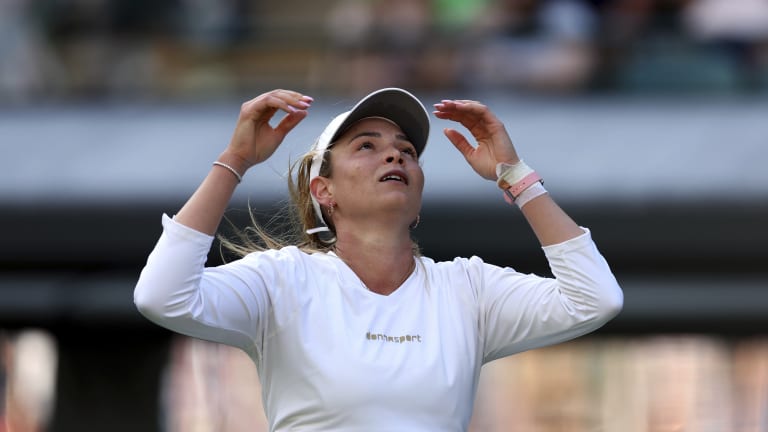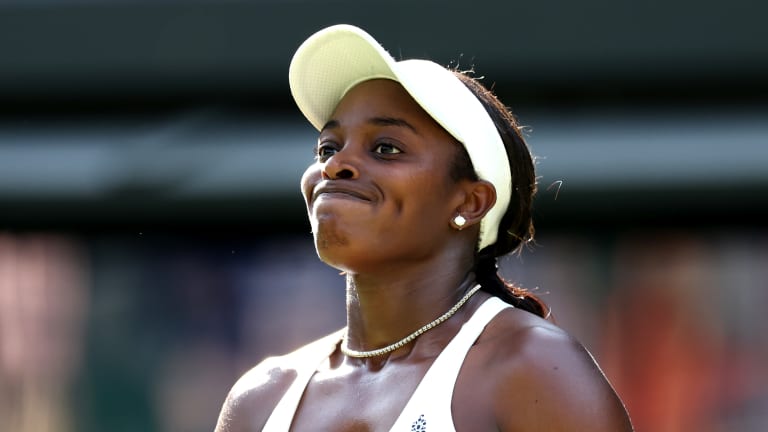Wimbledon
Donna Vekic panics, regroups, then escapes Sloane Stephens for emotional Wimbledon win
By Jul 06, 2023Wimbledon
Darren Cahill: Jannik Sinner watches more Carlos Alcaraz matches than he does with any other player
By Jul 14, 2025Wimbledon
Jannik Sinner reignites Carlos Alcaraz rivalry with Wimbledon victory
By Jul 14, 2025Wimbledon
Jannik Sinner reversed his usual pattern against Carlos Alcaraz. It won him Wimbledon
By Jul 14, 2025Wimbledon
Veronika Kudermetova and Elise Mertens win women's doubles title at Wimbledon
By Jul 13, 2025Wimbledon
Joy to the World: What Carlos Alcaraz has, and what we are enjoying
By Jul 13, 2025Wimbledon
Iga Swiatek keeps surprising herself after Wimbledon title caps "surreal" turnaround on grass
By Jul 12, 2025Wimbledon
Iga Swiatek wins first Wimbledon, sixth Grand Slam title with 6-0, 6-0 rout of Amanda Anisimova
By Jul 12, 2025Wimbledon
Wimbledon men's final preview: Will Carlos Alcaraz, Jannik Sinner share another epic?
By Jul 12, 2025Wimbledon
Julian Cash, Lloyd Glasspool become first all-British pair to win Wimbledon men's doubles title since 1936
By Jul 12, 2025Donna Vekic panics, regroups, then escapes Sloane Stephens for emotional Wimbledon win
Bursting into tears just prior to her post-match interview with the BBC, the Croatian said of her 4-6, 7-5, 6-4 victory, “It was an incredibly tough match.”
Published Jul 06, 2023
Advertising

Vekic has now won seven of her nine matches on grass in 2023.
© AP
Advertising

It was certainly a match that slipped away from Stephens, who was two points from closing it out.
© Getty Images